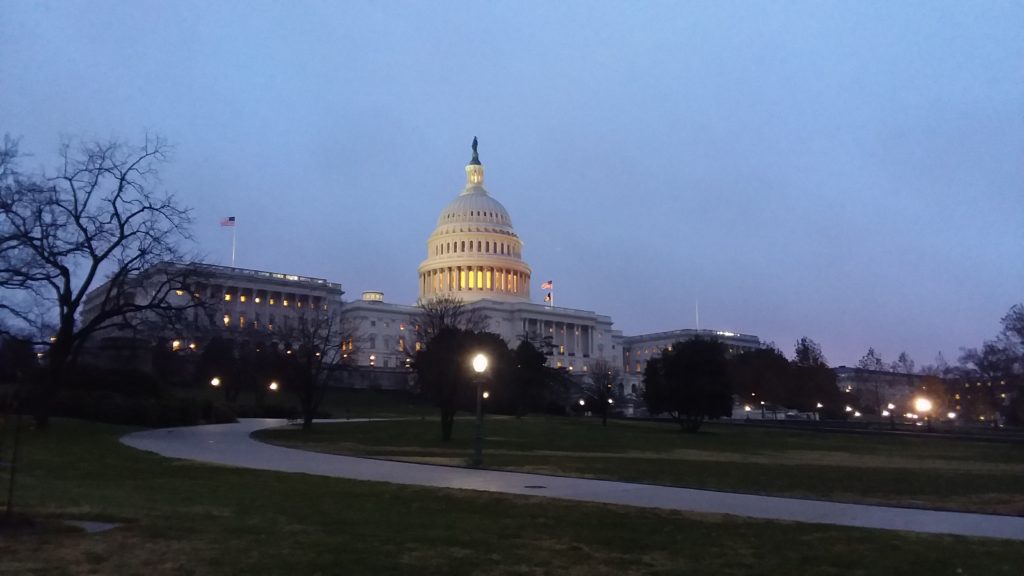The $2 trillion coronavirus stimulus bill that was approved late Wednesday in the Senate includes $200 million in funding for a federal push to bolster infection-control efforts in the nation’s nursing homes.
The Centers for Medicare & Medicaid Services (CMS) has placed infection control at the center of its emergency nursing home inspection protocols, suspending all non-emergency surveys and releasing stricter guidance for operators earlier this week.
The Senate’s landmark vote to boost the economy and fortify the nation’s health care system puts additional financial support behind CMS’s goals.
“The bill includes $200 million for CMS to assist nursing homes with infection control and support states’ efforts to prevent the spread of coronavirus in nursing homes,” according to a summary released by Sen. Patrick Leahy of Vermont.
Craig Caplan, a producer for C-SPAN, initially posted the summary on Twitter Wednesday afternoon.
The final package also provides $100 billion in funding for “a new program to provide grants to hospitals, public entities, not-for-profit entities, and Medicare and Medicaid enrolled suppliers and institutional providers to cover unreimbursed health care related expenses or lost revenues attributable to the public health emergency resulting from the coronavirus,” according to the Leahy summary.
The capsule version of the bill only covers the appropriations division of the package, which accounts for about $330 billion of the total; Leahy, a Democrat from Vermont, serves as the vice-chairman of the Senate Committee on Appropriations.
“I have said from the beginning that our response to this crisis will come in phases as we address the evolving nature of the coronavirus pandemic,” Leahy said in a statement. “Today our response is providing direct assistance to the American people, injecting new resources where they are needed most, and moving our country a step closer to emerging from this crisis stronger than we were before.”
CMS’s updated guidance was a direct reaction to the COVID-19 outbreak at a nursing facility in Kirkland, Wash., which resulted in the death of more than 25% of residents in less than three weeks from the first sign of symptoms.
“We used our experiences in Kirkland to develop a new inspection approach, and we’re also learning from the newest data about the virus and relying on longstanding principles of infection control,” CMS administrator Seema Verma said Monday.
The Senate passed the bill late Wednesday night by a vote of 96-0. The House must still approve the package before it can be sent to President Trump’s desk to be signed into law.
The final version does not appear to include a last-minute proposal that would have raised Medicare fee-for-service payments to nursing homes by 15% for all residents with a primary or secondary diagnosis of COVID-19 infection.
The proposed amendment, submitted by Sen. Ben Sasse of Nebraska, specifically acknowledged the additional costs of providing care to coronavirus patients in justifying the proposed 15% per-diem pay bump.
The increase would have only lasted as long as the president’s emergency COVID-19 declaration remained in effect.
Sasse, a Republican, positioned the amendment as a way to protect rural skilled nursing providers during the crisis; the senator also proposed a second amendment preserving prescription drug discounts.
“Our nurses, doctors, and medical providers are working hard to keep Nebraskans safe, and we can’t let Washington leave them behind,” Sasse said in a Tuesday statement. “These two common-sense amendments would give rural providers a boost and safeguard their existing programs to help them beat the virus in our communities. We’re going to beat this nasty virus.”
Sasse had also called on Department of Health and Human Services (HHS) secretary Alex Azar to eliminate the 25-bed cap on Critical Access Hospitals, which can also provide skilled nursing services under the swing-bed system.



